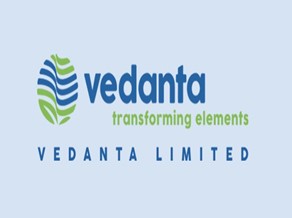CCI dismisses allegations of cartelisation against Hindalco and Vedanta Copper for lack of evidence
By way of order dated 08.10.2020, the Competition Commission of India (“Commission/CCI”) has dismissed allegations of cartelisation between Hindalco Industries Ltd (“Hindalco”) and Vedanta Limited (“Vedanta”). The allegations specifically pertained to determining prices of certain copper products / raw material in India, sharing the market of certain copper products by way of allocation of customers and engaging in bid rigging/ collusive bidding.
Background and Allegations
Information before the CCI was filed by an Advocate claiming confidentiality relying on data regarding the cartelisation in the copper market through ‘informed’ and ‘credible sources’.
The information revealed that Hindalco, Vedanta and Hindustan Copper Limited (a State-owned enterprise) are the only three domestic producers in India, engaged in the production of refined copper wherein Hindalco and Vedanta control around 85-90% of the domestic production and around 75-80% of the domestic supply, giving them a virtual stranglehold on supplies in the Indian market.
It was alleged that Hindalco and Vedanta cartelised with respect to additional charges that could be freely determined by the manufacturers and that till about 2018, the officials of both would frequently discuss and set the prices over meetings and phone calls. Further, both the parties issued their price circulars to buyers almost simultaneously within a short span of time and that these price circulars contained various components including similar additional charges.
The informant alleged that Hindalco and Vedanta granted discounts to their customers on a premium which is set out in their price circulars and these discounts are also discussed and shared between them in order to adjust volumes and maintain parity in the market. It was submitted that the two different manufacturing entities had identical processing costs (charged as premium) for converting copper concentrate into saleable product i.e., copper rods and copper cathodes month after month, year after year despite having differences in terms of capacities, sources and cost of raw material (copper concentrate), other input/ factor costs like employees, electricity, interest, etc which was proof of the cartelisation.
Further, it was alleged that that the freight charges imposed by the OPs with respect to each geographical region (other than eastern India) are also identical despite the fact that the manufacturing plants are located at different locations.
It was also alleged that Hindalco and Vedanta have split customers amongst them and neither of them approaches the other’s customers.
An allegation with respect to a verbal agreement made in 2015/16 was made wherein both the manufacturers decided that in the event one of them ended up with selling larger volume of copper products, such manufacturer would be required to make purchases of copper products from the other in order to maintain parity. It is alleged that in order to avoid scrutiny by regulators, such purchases would not carry the name of the purchasing manufacturer, but were instead billed under fake identities.
Allegation with respect to bid rigging was also made in supplies to the defence industry. It was submitted that when tenders were issued by the Indian Ordnance Factories, they would mutually decide the winning bidder and the prices to be submitted by each of them to the Indian Ordnance Factories (the winning bidder would submit slightly lower prices in response to the tender). Further, it is alleged that the prices quoted to the Indian Ordnance Factories would almost invariably be higher than the prices charged by them to their domestic customers under their price circulars.
CCI prima facie opinion
As regards the allegations of charging similar additional charges by Hindalco and Vedanta, the CCI noted that mere price parallelism in itself is not sufficient to order probe in the absence of any other material on record wherefrom collusion or concert between the parties can be inferred and despite granting an opportunity to the informant to file additional information, nothing was brought on record to substantiate the allegation.
With respect to allegations that the officials of Hindalco and Vedanta communicate with each other frequently to set the price and also to decide on the time to mutually revise the price by way of price circulars, the Commission noted that despite submitting that the agreement was usually captured on excel sheets, the informant was unable to give evidence of any communication or excel sheet to support the allegation. Further, the names of the officials were also not provided and therefore the allegations were considered as too ‘wild’ to order an investigation.
The allegations with respect to similar freight charges was dismissed by the Commission on the basis of the information itself wherein it was admitted that that freight charges are another component of the cost and buyers of copper products can also use their own vehicles for transportation of copper products from the manufacturers’ warehouse/ godowns/ depots thereby indicating that buyers have the option with respect to transportation of copper products.
Further, it was observed that the Informant did not place on record any document to support the allegation that the manufacturers had their own exclusive buyers. No document was produced before the Commission which revealed that either manufacturer refused to supply the products to each other’s customers.
As regards the allegation of bid rigging in the defence industry, it was observed that itis neither feasible nor desirable to embark upon any roving probe in respect of the tenders which are stated to have been concluded as early as July 2010 to August 2017 in absence of any material showing even prima facie concert or specific averment as to collusion.
Accordingly, the case was closed by the Commission under Section 26(2) on the grounds of failure to provide evidence/documents to substantiate the allegations made in the information.
Comment: CCI has been closing allegations of cartelization based on mere price parallelism since the judgment of the Supreme Court in Rajasthan Cylinder case. There seems to be a growing understanding of market conditions now and this order will discourage making unsubstantiated allegations. However, there is a flip side to this too. It is very difficult for customers of monopolies or duopolies ( like the kind present in this case) to come up to challenge their market practices even if they suppress fair competition for obvious fear of reprisals , which often includes refusal to supply to belligerent customers or refusal to give discounts etc. or impose conditions for supply /discounts etc. The recent CCI order against Grasim Industries Ltd. in the market for Viscose staple Fibre provides a good example. In my view , therefore , CCI needs to be extra cautious and should start considering investigation in such cases where the market is highly concentrated









